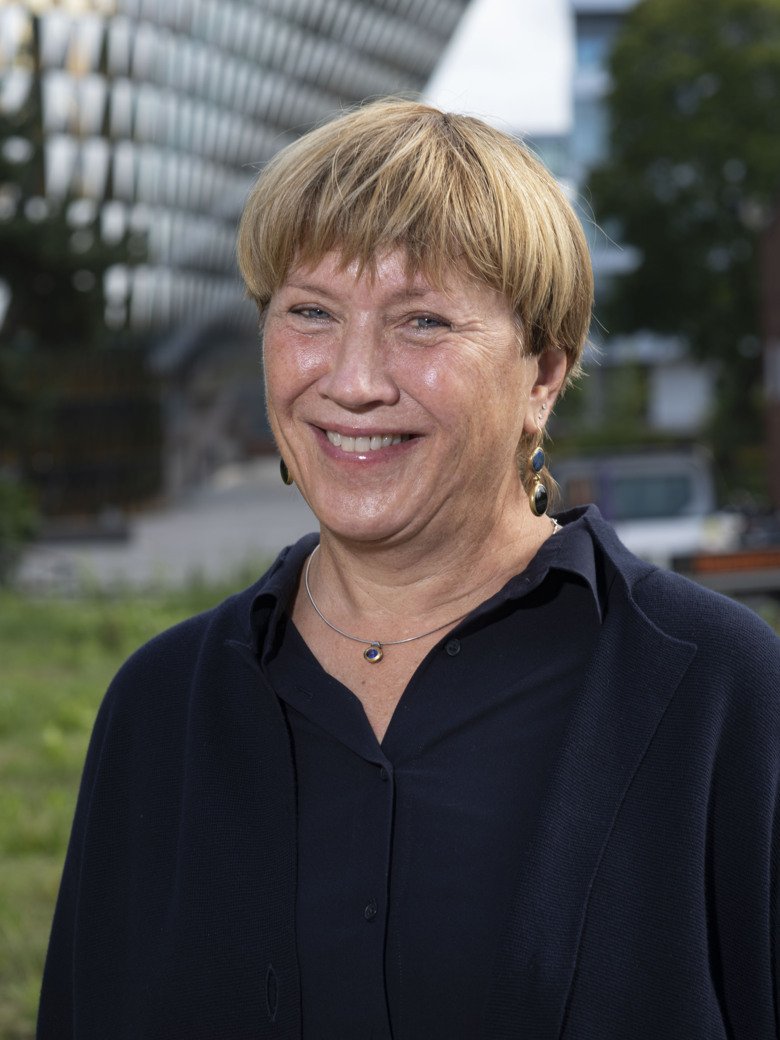Researching the causes of traffic injuries
Marie Hasselberg conducts epidemiological research on various types of injuries, including traffic injuries. Her aim is to identify both causes and possible improvements. Much of her research takes place in low- and middle-income countries.

What are you researching?
“I am a sociologist researching traffic and burn injuries from a public health perspective. Much of my research focuses on traffic injuries in low- and middle-income countries – what causes them and how the number of injuries can be reduced. Our analysis is mainly focussed on the systemic level, which means that we study how changes in the environment and social structure affect people’s safety and freedom of movement. This can be anything from the licensing process for driver’s licenses to the use of alcohol and drugs among motorcycle taxi drivers. It sometimes also concerns the design of the traffic environment, for example, how bigger investments in pedestrian bridges over heavy traffic routes impact the safety of different groups.”
Why is this research important?
“Globally, traffic injuries are one of the main causes of invalidity and death – yet there is minimal research being done on road safety in low- and middle-income countries. Most of the research has pertained to high-income countries like Sweden, and the conclusions from this environment cannot be applied effectively to other countries. One concrete example is that different modes of transport – including cars, motorcycles, bikes, draught animals, and pedestrians – share the same space in low- and middle-income countries to a higher degree than in Sweden.”
Are you also interested in Swedish road safety?
“Yes, the traffic system is constantly changing, so research in this area also needs to continue. Our research in Sweden includes, among other things, a study on quality of life after traffic injuries. We observed surprisingly large social, economic, and psychological consequences for those who have been injured. Many people feel unsafe in traffic following these incidents, which restricts their lives considerably – they spend less time in traffic, and some stop driving completely. There has been a lot of focus on the rehabilitation of physical injuries after traffic accidents, but our research indicates that psychological rehabilitation should also receive attention.”
Text: Anders Nilsson, in translation from Swedish.
First published in the booklet From Cell to Society 2019.
About Marie Hasselberg
Professor of Public Health Epidemiology at the Department of Global Public Health
Marie Hasselberg was born in Gävle in 1961. She studied sociology at Stockholm University where she graduated in 1985. During the 1980s and 1990s she worked with public health- related issues at the Stockholm County Council and the National Board of Health and Welfare, among others. In 2002-2003 she worked at the Ministry of Health and Social Affairs as part of the Child Safety Commission.
Hasselberg successfully defended her doctoral thesis in social medicine at KI in 2004. Since that time she has been conducting research at KI’s Department of Global Public Health. She was appointed Associate Professor in 2008 and has been Head of Department since 2018.
Marie Hasselberg was appointed Professor of Public Health Epidemiology at Karolinska Institutet on 1 July 2019.
